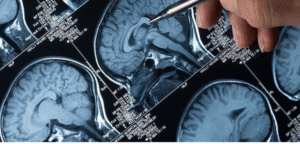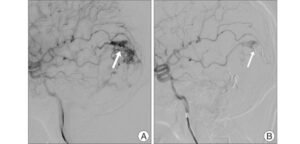Brain Hemorrhage – Signs, Emergency Care & Treatment
A brain hemorrhage, or brain bleed, is a severe condition in which bleeding occurs within the brain. If not addressed quickly, this bleeding can disrupt normal brain function and lead to severe complications.
Understanding the basics of a brain hemorrhage—causes, symptoms, and treatments—is crucial for effective management and recovery.
What Causes Brain Hemorrhage?
Several factors can contribute to a brain hemorrhage. High blood pressure is one of the most common causes, as it can weaken the blood vessels in the brain, making them more likely to burst. Other causes include:
- Trauma: Injuries to the head from accidents or falls can cause blood vessels in the brain to rupture, leading to a hemorrhage.
- Aneurysms: An aneurysm is a weakened spot in a blood vessel that can balloon and burst, resulting in bleeding in the brain.
- Blood Vessel Abnormalities: Certain congenital conditions can lead to abnormal blood vessel structures, which can increase the risk of bleeding.
- Medical Conditions: Conditions like liver disease or blood disorders that affect clotting can also increase the risk of a brain hemorrhage.
By understanding these causes, individuals can take steps to reduce their risk through regular medical check-ups and a healthy lifestyle.
What Are the Symptoms of Brain Hemorrhage?
Symptoms of a brain hemorrhage can vary based on the severity and location of the bleed. Common symptoms to watch for include:
- Severe Headache: Often described as the worst headache of one’s life, it may come on suddenly and intensely.
- Nausea and Vomiting: These symptoms frequently accompany a severe headache.
- Confusion or Difficulty Speaking: You might experience sudden confusion, trouble speaking, or difficulty understanding others.
- Seizures: Seizures can occur as the bleeding irritates the brain tissue.
- Weakness or Numbness: Sudden weakness or numbness may occur in the face, arm, or leg, typically on one side of the body.
- Loss of Consciousness: In severe cases, a person might lose consciousness.
Recognizing these symptoms early is essential for timely medical intervention.
How is Brain Hemorrhage Diagnosed?
Diagnosing a brain hemorrhage involves several steps:
- Medical History and Physical Examination: A detailed review of symptoms and medical history helps identify potential causes and risk factors.
- Imaging Tests: Techniques such as CT scans or MRIs visualize the bleeding, determine its extent, and identify the underlying cause.
- Angiography: This specialized imaging test may be used to examine blood vessels and identify any abnormalities, such as aneurysms or arteriovenous malformations.
Accurate diagnosis through these methods is critical for determining the most appropriate treatment plan.
How is Brain Hemorrhage Treated?
Treatment for a brain hemorrhage depends on the severity of the condition and its underlying cause. Immediate medical care is crucial to manage and treat the hemorrhage effectively. Treatment options include:
- Medication: Doctors may prescribe medications to manage blood pressure, prevent seizures, and reduce brain swelling.
- Surgery: In some cases, surgery might be necessary to remove the blood accumulation or repair the damaged blood vessels.
- Rehabilitation: After initial treatment, rehabilitation may be required to address any functional impairments and aid recovery.
Why Choose Us for Your Brain Hemorrhage Treatment?
For brain hemorrhage treatment in Delhi, India, our facility is unmatched in expertise and care. We specialize treatmenting hypertension, trauma, and aneurysms. Our state-of-the-art facilities in Delhi NCR offer advanced diagnostic and surgical options for effective management of brain hemorrhages. With a team of skilled professionals and cutting-edge technology, we provide personalized and comprehensive care to ensure the best outcomes.
Trust us for exceptional treatment and recovery support tailored to your needs.
Related Blogs & Videos

From Diagnosis to Treatment: What Role Does Neuro-Oncology Play in Enhancing Patient Outcomes?
According to the World Health Organization (WHO), primary brain tumors account for approximately 2% of…
Read Article →
Is Tumor Embolization a Major Surgery?
Tumor embolization, designed to cut off blood supply to tumors delicately, stands out for its…
Read Article →